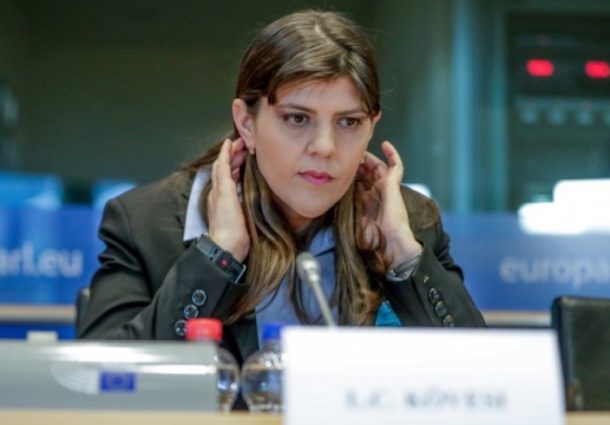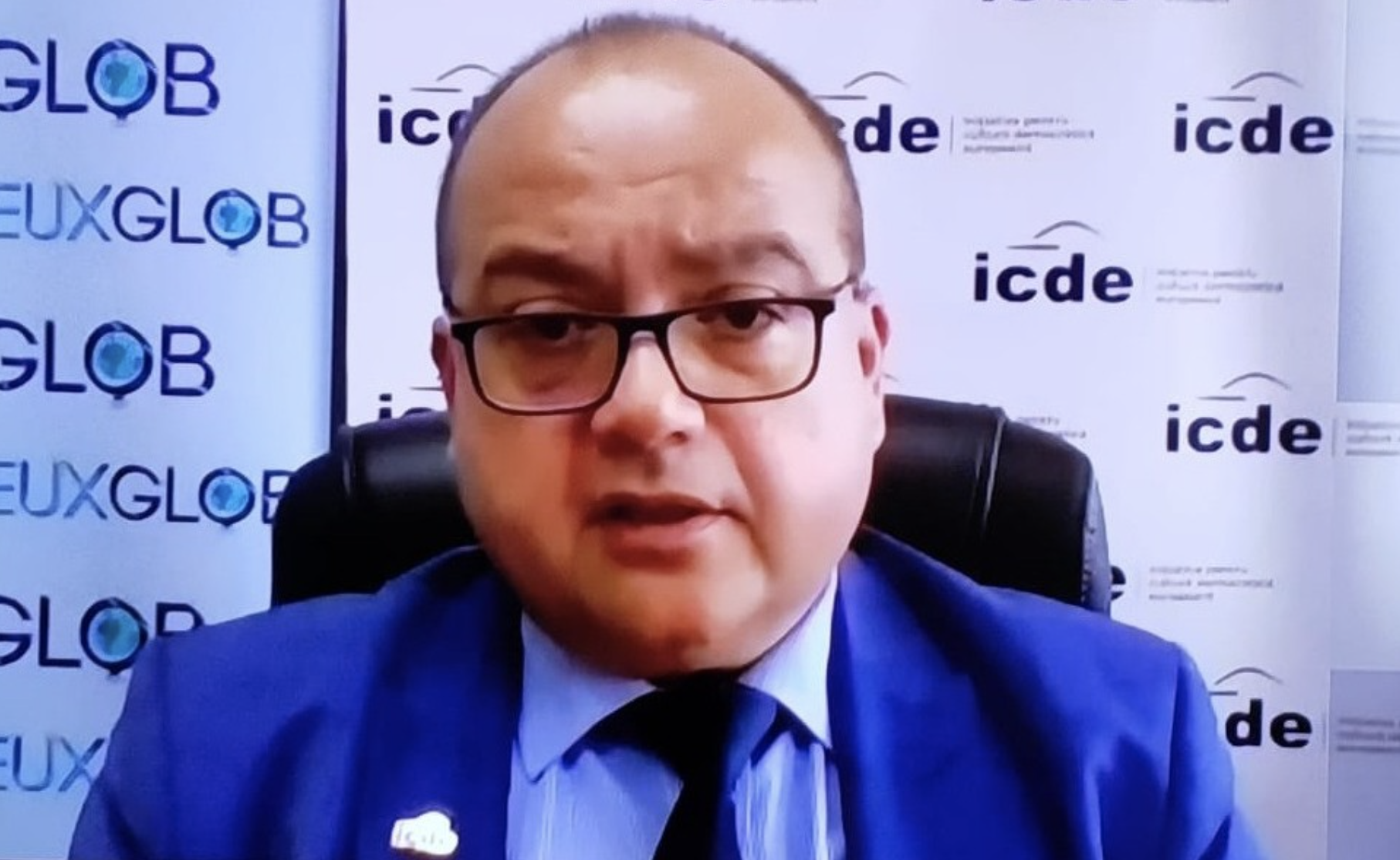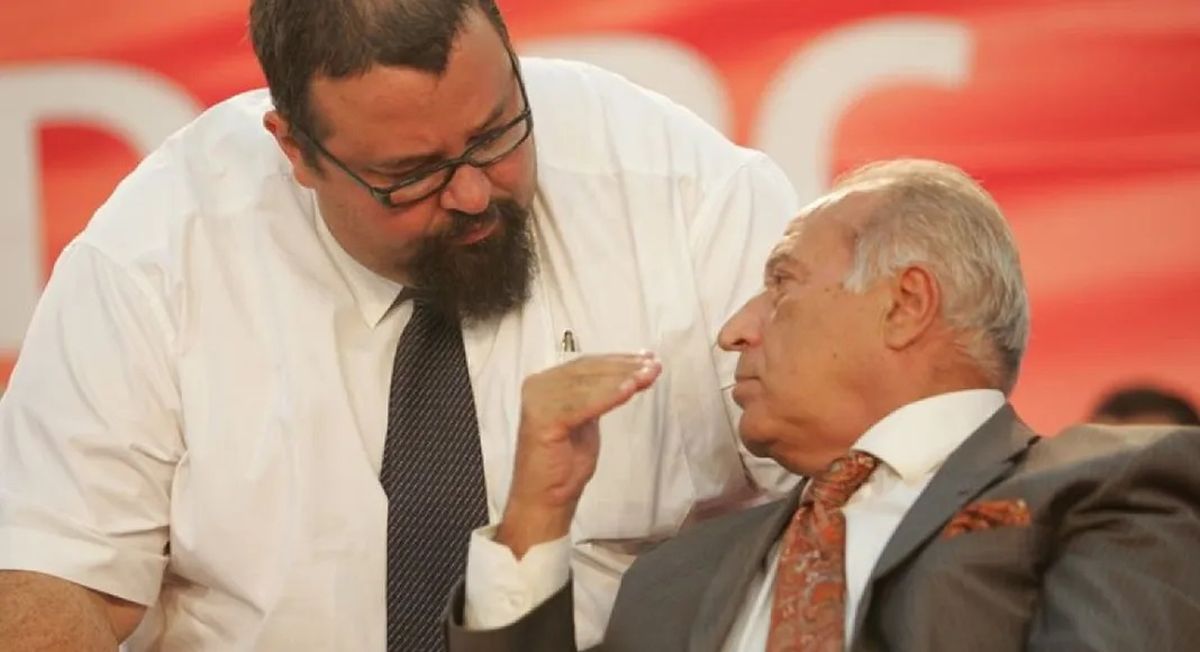Financial Times, editorial fara precedent despre Romania: „UE trebuie sa reziste la presiunile Romaniei si sa o numeasca pe Kovesi”

Intr-un articol semnat de „Consiliul editorial”, Financial Times, una dintre cele mai influente publicatii din lume, solicita UE sa „reziste” presiunilor venite din partea puterii de la Bucuresti si sa o aleaga pe Laura Codruta Kovesi in functia de sefa a Parchetului European.
”UE ar trebui sa aleaga persoana cea mai calificata pentru post. E Laura Codruta Kovesi, un procuror curajos din Romania. Sunt multe argumente excelente in favoarea ei, unul dintre ele chiar faptul ca guvernul Romaniei se impotriveste numirii sale. Guvernul Romaniei devine rapid un abuzator in serie al normelor si valorilor UE in privinta statului de drept”, scrie Financial Times.
”Eforturile lui Kovesi au inspirat milioane de compatrioti, dar a fost recompensata cu adversitatea PSD, partid condus de Liviu Dragnea. Guvernul a manevrat astfel incat sa o revoce de la sefia DNA… Fortele anti-reformiste din guvernul Romaniei si din justitie sunt atat de disperate sa impiedice numirea ei ca procuror european incat a fost pusa sub acuzare pentru suspiciuni firave de abuz in serviciu. Aceasta incercare nerusinata de a o discredita pe Kovesi a coincis cu un OUG tintit sa stirbeasca independenta DNA”, mai spune publicatia cu sediul la Londra.

Articolul integral, in limba engleza:
A majority of EU governments, backed by the European Parliament’s main political parties, often speak up strongly in defence of judicial independence and the rule of law in their 28-nation club. Now it is time for them to put their words into action. The EU is in the process of appointing the first head of its newly established European Public Prosecutor’s Office. They should choose the person best qualified for the job. She is Laura Codruta Kovesi, a brave and distinguished prosecutor from Romania.
There are several excellent arguments in favour of Ms Kovesi, not least of which is that Romania’s government, fast becoming a serial abuser of EU norms and values on the rule of law, fiercely opposes her appointment. Doubtless the two other candidates for the job, one each from France and Germany, would do it well. But neither has Ms Kovesi’s frontline experience of conducting a struggle, arduous and sometimes lonely, against deep-rooted political corruption in her homeland.
Appointed as head of Romania’s anti-corruption directorate in 2013, Ms Kovesi helped to secure numerous convictions against government ministers, members of parliament and mayors for fraud, abuse of power and other crimes. Her tireless work earned her the respect of Romania’s partners. Upon the nation’s EU entry in 2007, they had insisted that it should be placed under a special surveillance mechanism because of its troubling record on the rule of law.
Ms Kovesi’s efforts inspired millions of her compatriots to demand that the political classes stop obstructing the long-overdue decontamination of Romanian public life. But she was rewarded with the enmity of the present Social Democrat-led government and Liviu Dragnea, the strongman behind it. The government manipulated her out of office in July 2018 as it embarked on what can only be described as a brazen, inexcusable defiance of EU rules on freedom of the judiciary from political interference.
Anti-reform forces in the Romanian government and judicial system are so desperate to prevent Ms Kovesi from becoming the EU’s first chief prosecutor that she was placed under investigation this month on flimsy suspicions of abuse of office. This shameless attempt to discredit Ms Kovesi coincided with an emergency government decree aimed at sharply curtailing the independence of the anti-corruption agency which she headed for five years with such distinction. Klaus Iohannis, Romania’s reform-minded president, was right to warn that his country should not be “at the beck and call of those who want to impose political control over the judiciary”.
It is encouraging that two European Parliament committees recommended this week that Ms Kovesi should be appointed to the prosecutor’s job. However, this does not make it a done deal. The final decision must be taken jointly by the European Council, which groups national governments, and the EU legislature. Romania’s government is piling pressure on the council to sink Ms Kovesi’s chances.
Her appointment would put EU leaders in the position of disregarding the strongly expressed wishes of a government that has occupied the bloc’s six-month rotating presidency since the start of January. Thankfully, however, EU habits of compromise and deference to one member state’s will do not always prevail. In 2017, EU leaders overrode the nationalist Polish government’s objections and made the right move by reappointing Donald Tusk as EU council president. They should show similar resolve now and give the prosecutor’s job to Ms Kovesi.









